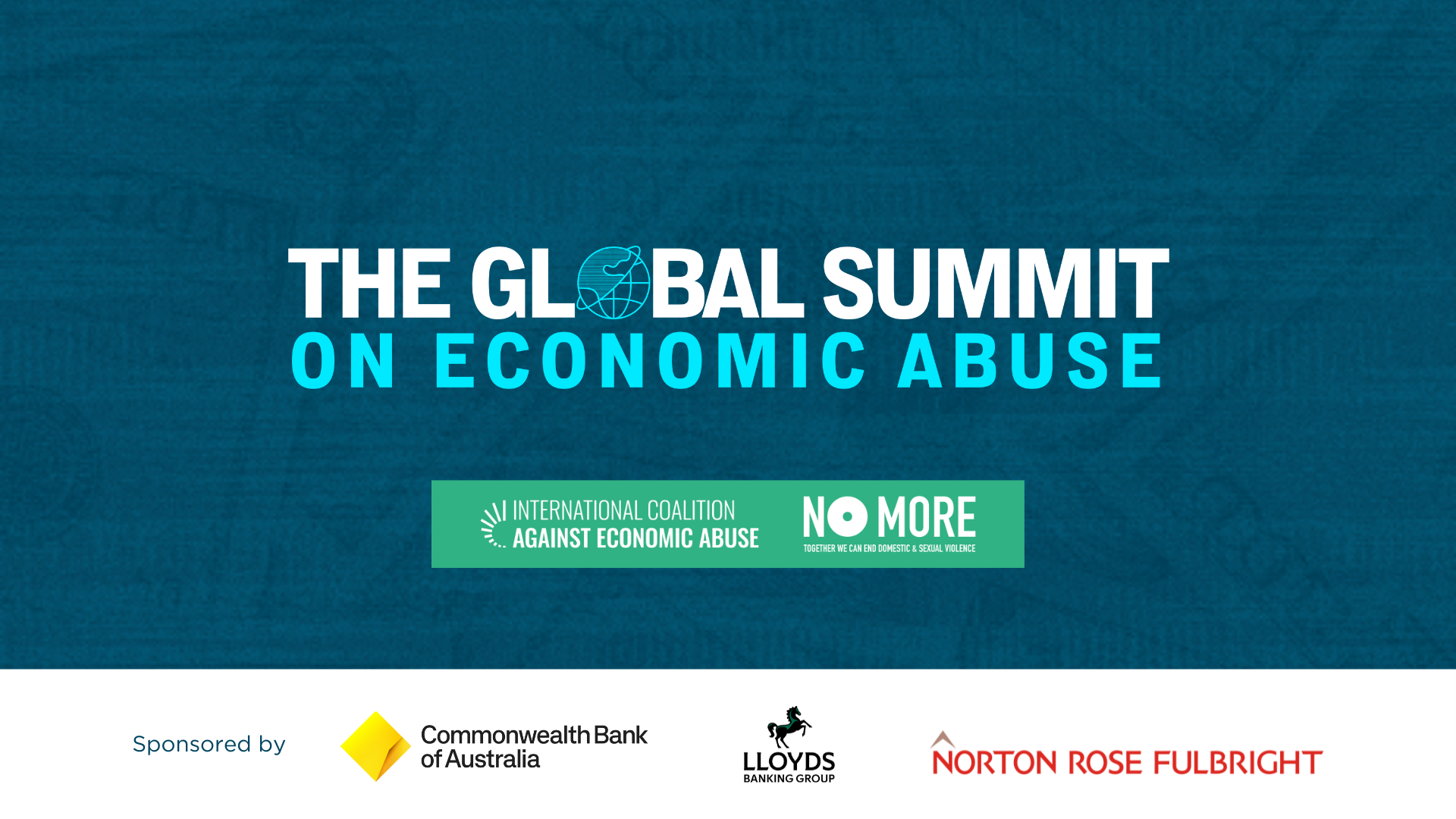The Power of Partnership: Why Ending Economic Abuse Requires Cross-Sector Collaboration

Economic abuse is a form of coercive control present in 99% of domestic abuse cases, where perpetrators restrict, exploit, or sabotage a partner’s access to finances, employment, or resources. Its impacts are far-reaching and devastating, often leaving survivors trapped in unsafe relationships or struggling to rebuild their independence after abuse.
As awareness of economic abuse grows, so does the recognition that no single system can address it alone. Ending economic abuse is not the work of any one organization, sector, or strategy. It requires a collective effort, bringing together governments, financial institutions, employers, charities, and communities to create lasting change.
The Global Summit on Economic Abuse—presented in partnership with the International Coalition Against Economic Abuse and sponsored by Commonwealth Bank, Lloyds Banking Group, and Norton Rose Fulbright—is just one week away. From financial institutions and policymakers to survivors and frontline advocates, this free global event will highlight how we can collectively stop economic abuse and support lasting independence for victim-survivors.
Building Practical Partnerships
When leaving an abusive relationship, a survivor may have to deal with several entities: banks, employers, housing services, and welfare systems among them. Each can play a role in either enabling safety and stability or, when disconnected, creating new risks and barriers.
This complexity makes collaboration crucial. For example:
Financial institutions can help identify red flags of economic control, provide safe access to accounts, and design policies to support survivors in rebuilding credit.
Employers can implement workplace policies that protect survivors from discrimination or job loss, offering measures like paid leave, flexible working, or access to employee assistance schemes.
Governments can strengthen legal frameworks that recognize economic abuse while ensuring services and systems are coordinated to respond effectively.
Charities and specialist services can provide vital advocacy and direct support, ensuring survivor voices and lived experience shape solutions and prevention efforts.
And as individuals, we can all play a part by committing to learn more, so we can help recognize the signs of financial control and support our loved ones who may be affected.
With these kinds of cross-sector responses, we can close the gaps that too often leave survivors without the support they need. By aligning goals, sharing expertise, and centering survivor experiences, we can educate more people to stop economic abuse before it starts.
Moving Forward: The Global Summit on Economic Abuse
On November 18th, join NO MORE and the International Coalition Against Economic Abuse for The Global Summit on Economic Abuse, a free, virtual conference uniting leaders, advocates, and innovators to drive change. Together, we can design practical solutions, share proven strategies, and strengthen partnerships to ensure economic safety for all.

Register now for free to be part of this global conversation. You can join for all sessions or just attend the ones that fit your interests and schedule.
Together We Can End Domestic and Sexual Violence






